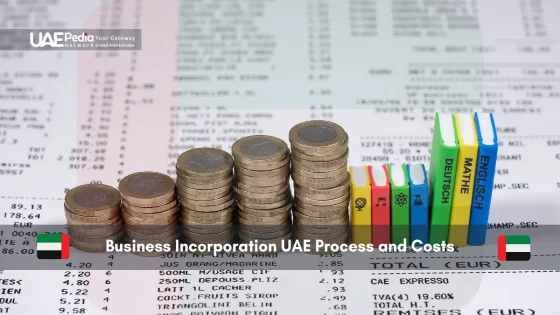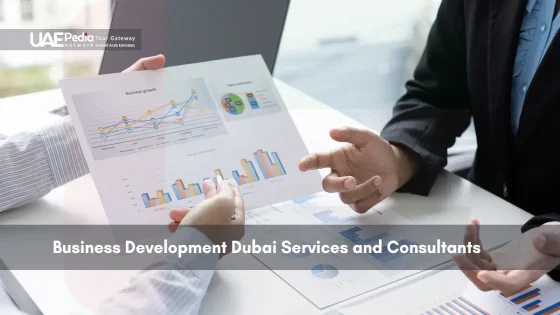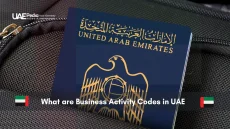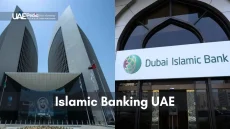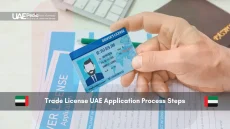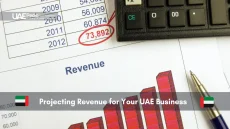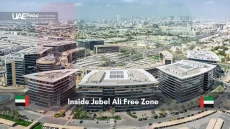As of late 2025, over 210,000 free zone licenses have been issued across the UAE, with Dubai accounting for 53% of them.This desert-turned-global-hub blends ancient trade routes with modern infrastructure, offering entrepreneurs a launchpad where ambition meets streamlined processes. Whether you’re eyeing Dubai’s skyscrapers or Abu Dhabi’s industrial zones, understanding the essentials turns complexity into clarity.
Setting up here involves more than paperwork—it’s about aligning your vision with the right structure. LLCs now offer 100% foreign ownership in many sectors, providing local market access, while Free Zone entities continue to offer full ownership and tax incentives. You’ll need to secure a unique trade name, outline capital requirements, and submit notarized documents—steps that feel less daunting with a strategic gateway like the Emirates’ updated regulations.
Think of it as assembling a puzzle: every piece—license type, office space, activity codes—snaps into place for compliance. Miss one detail, and delays follow. But nail the process, and you’ll join a community where innovation isn’t just welcomed—it’s expected.
- Structure matters: Compare LLCs (local reach) vs. Free Zones (tax advantages) to match your goals.
- Name approval and capital allocation form your venture’s foundation—plan these early.
- Documents require precision; even a single unsigned page can pause progress.
- Since 2021, foreign investors can own 100% of mainland companies in most sectors, eliminating the need for a local partner.
Comprehensive Guide to Company Formation in the UAE 2025
Imagine launching your venture where sand dunes meet AI-powered cities—this is the UAE’s magic. With 45+ free zones and zero income tax, it’s no wonder global innovators flock here like traders once did to spice routes. The secret sauce? A cocktail of futuristic infrastructure, cultural adaptability, and policies that let you keep 100% of your profits.
Advantages of Establishing a Business in the UAE for Foreign Investors
Picture this: A tech startup in Dubai’s Silicon Oasis closes deals across Asia and Europe before lunch. How? The UAE sits at the crossroads of global trade, with 80% of the world’s population reachable within 8 hours. Add 100% foreign ownership in free zones, and you’ve got a recipe for growth without borders.
| Entity Type | Ownership | Tax Benefits |
|---|---|---|
| Free Zone Company | 100% Foreign | 0% Corporate Tax |
| Mainland LLC | 51% Local Partner | VAT Applicable |
| Branch Office | Parent Company | No Import Duties |
Types of Business Entities in the UAE: Free Zones vs. Mainland
Choosing your structure here is like picking a vehicle: Go-fast free zones for digital nomads, sturdy mainland trucks for local markets. Take XYZ Robotics—they used a Sharjah free zone to prototype drones while accessing Dubai’s ports. Their secret? A free zone setup guide that mapped licenses to their R&D needs.
Need to move money? Emirates NBD helped a fintech firm process $2M daily across 18 currencies. Whether you’re trading spices or software, the UAE’s services turn red tape into red carpets. Ready to plant your flag where ambition gets VIP treatment?
Read More:
Step-by-Step Guide to Business Incorporation in the UAE
Ever wondered how global innovators set up shop without getting lost in paperwork? Let’s break it down like a local pro—no camels required.
Gathering Your Paper Trail
Start with three essentials: passport copies (color-scanned), a trade license application, and your company’s articles of association. Think of these as your golden ticket—without them, the ride stops. Pro tip: Get documents notarized before arrival to dodge delays.
| Document Type | Purpose | Approval Needed |
|---|---|---|
| Passport Copies | Identity Verification | Ministry of Foreign Affairs |
| Bank Deposit Proof | Capital Verification | Chosen Bank |
| Visa Application Forms | Residency Permits | GDRFA/ICA |
Dancing With Government Gatekeepers
Picture this: You’ve submitted everything, but forgot one signature. Cue the “come back tomorrow” loop. Avoid this by triple-checking forms. Most approvals now happen online—except for biometrics. Yes, they’ll scan your fingerprints!
Visa types matter more than you’d think. Investor visas need share certificates, while employment visas require medical checks. Align your business activities with license categories—a consulting firm can’t sell physical goods without extra permits.
| Visa Type | Requirements | Processing Time |
|---|---|---|
| Investor | Proof of Ownership | 5-7 Days |
| Employee | Employment Contract | 10 Days |
| Dependent | Relationship Proof | 14 Days |
When opening a corporate account, banks want to see your trade license and shareholder details. One founder learned this the hard way: “Our application got rejected because we used a P.O. Box instead of a physical office address.” Lesson? Dot every ‘i’—twice.
Comparing Free Zone and Mainland Business Setups in the UAE
Picture standing at a desert crossroads—one path leads to tax-free innovation hubs, the other to bustling local markets. Your choice here shapes everything from profit margins to daily operations. Let’s unpack which route suits your goals.
While free zone companies in Dubai can now expand into the mainland under Executive Council Resolution No. 11 of 2025, they must obtain a renewable one-year license from the Department of Economy and Tourism (DET) to operate outside their designated zones. Ref.: “James Berry & Associates. (2025). UAE Free Zone Companies Can Now Operate in the Mainland. jamesberrylaw.com.” [!]
Tax Havens vs. Local Access
Free Zones act like innovation greenhouses. A Dubai Media City startup founder shared: “We kept 100% profits, hired globally, and scaled to 12 countries in 18 months.” No corporate tax, full profit repatriation, and flexible office solutions make these zones ideal for digital nomads.
| Factor | Free Zone | Mainland |
|---|---|---|
| Ownership | 100% Foreign | 51% Local Partner |
| Taxes | 0% Corporate | 5% VAT + Others |
| Office Space | Flexible Options | Physical Required |
| Activities | Specialized Licenses | Broader Market Access |
Licensing & Leadership Dynamics
Mainland setups shine for local trade. A café chain owner in Abu Dhabi notes: “We needed street-level visibility and direct retail—something Free Zones don’t offer.” But this comes with shared management control and stricter shareholder rules.
Free Zones simplify compliance—no ministry approvals for most activities. Yet, mainland companies can bid on government contracts. Office requirements differ too: virtual desks work in zones, while mainland firms need physical spaces.
Choosing? Ask: Are you exporting globally or selling locally? Do you value tax savings over market reach? Your answers map the perfect launchpad.
Essential Legal Documentation and Regulatory Compliance in the UAE
Think of the Emirates’ legal framework as a mosaic—every piece must fit perfectly to reveal the full picture. Proper documentation isn’t just red tape; it’s the bedrock of economic development and investor trust. Miss a step, and you risk delays—or worse, fines from vigilant authorities.
Properly drafted and notarized Articles of Association are crucial for defining ownership stakes and management roles within a company. Inadequate documentation can lead to internal disputes and legal complications. Ref.: “ClearTax. (2025). Trade License UAE: Types, Importance, Documents and Application Process. cleartax.com.” [!]
Company Name Registration and Articles of Association
Your venture’s identity starts with a name that passes three tests: uniqueness, cultural sensitivity, and alignment with licenses. One founder learned the hard way: “We spent weeks revising ‘Desert Tech Holdings’ after it conflicted with an existing trademark.” Submit your chosen name to the Department of Economic Development (DED) or free zone authority, along with:
- Passport copies of shareholders
- Initial capital declaration
- Draft articles of association (notarized)
Articles outline ownership stakes and management roles—get them right to avoid future disputes. Pro tip: Use a checklist of required legal documents to streamline submissions.
“read more: UAE Work Satisfaction Factors Among Professionals“
Obtaining Trade Licenses and VAT Numbers
Trade licenses are essential for legal operation in the UAE, with application processes varying by jurisdiction. Apply through your chosen jurisdiction’s portal, specifying activities from consulting to e-commerce. Processing times vary:
| License Type | Issuing Authority | Average Timeline |
|---|---|---|
| Commercial | DED | 7 Days |
| Professional | Free Zone | 3 Days |
| Industrial | Municipality | 14 Days |
VAT registration is mandatory once revenue exceeds AED 375,000 (approximately $102,000), as per Federal Tax Authority guidelines. File through the Federal Tax Authority’s portal, attaching bank statements and trade license copies. A Dubai-based logistics pro shares: “We automated tax filings using cloud accounting tools—saved 20 hours monthly.”
Navigating these steps alone? Possible, but risky. Local advisors decode nuances like activity code classifications—a mismatch could limit expansion. Remember: Compliance isn’t a one-time task. Annual renewals and audits keep your foundation rock-solid in the United Arab Emirates’ dynamic market.
Businesses in the UAE must register for VAT if their taxable supplies and imports exceed AED 375,000 in the past 12 months or are expected to exceed this amount in the next 30 days. This registration is mandatory and must be completed through the Federal Tax Authority’s portal. Ref.: “Federal Tax Authority. (2025). VAT Registration. tax.gov.ae.” [!]
Setting Up Corporate Bank Accounts and Office Spaces in the UAE
Picture this: You’ve just landed your dream office view of Dubai Marina—but your corporate bank account hasn’t cleared yet. Let’s fix that. Navigating financial logistics here feels like ordering karak chai: simple once you know the secret steps.
Failure to provide a physical office address, as opposed to a P.O. Box, can lead to the rejection of corporate bank account applications in the UAE. Banks require verifiable business premises to comply with regulatory standards. Ref.: “Finanshels. (2025). Business Bank Account UAE – Costs, Requirements & Step-by-Step Guide. finanshels.com.” [!]
Unlocking Financial Doors
Banks in the UAE require comprehensive documentation and a solid business plan to establish corporate accounts. A tech founder shared: “Emirates NBD approved our account in 48 hours because we showed three years of projected cash flow.” Your blueprint? A business plan detailing market analysis, capital sources, and growth strategies. Pro tip: Match your legal structure to banking needs—Free Zone entities often face fewer hurdles than mainland setups.
| Bank | Key Perk | Minimum Deposit |
|---|---|---|
| Emirates NBD | Multi-currency Accounts | AED 50,000 |
| First Abu Dhabi | Digital Onboarding | AED 100,000 |
| Mashreq | Startup-Friendly | AED 25,000 |
Claiming Your Corner
Office hunting? Think Goldilocks: Too central, and rents soar. Too remote, clients vanish. A logistics firm found sweet spots near Al Quoz warehouses—40% cheaper than Downtown, with quick highway access. Use Ejari registration as your shield: This gov’t system ensures lease transparency. One entrepreneur warned: “Skip Ejari, and you’ll battle hidden fees later.”
| Location | Avg. Rent (AED/sqft) | Accessibility |
|---|---|---|
| DIFC | 220 | 5/5 |
| Dubai South | 85 | 3/5 |
| Sharjah | 65 | 4/5 |
Mainland companies often balance shared offices and client meetings at coffee shops—flexibility is key. Whether you’re eyeing glass towers or cozy co-working spaces, align your footprint with cash flow. After all, even desert blooms start with strong roots.
Budgeting and Compliance Strategies for UAE Business Setup
Building a venture here is like crafting a sandcastle—every layer needs precise planning to withstand tides. Smart budgeting turns fees into stepping stones rather than stumbling blocks. Let’s break down how to align your spending with long-term benefits while dancing gracefully with regulations.
RESOURCE REQUIREMENT:
Trade license costs in the UAE vary depending on the type and jurisdiction. For instance, a professional license in Dubai typically ranges from AED 10,000 to AED 15,000, excluding additional fees for notary services and document attestations. Ref.: “UGS DXB. (2025). Trade License In Dubai UAE | Types, Cost & Process 2025. ugsdxb.com.” [!]
“Read also: Government Support UAE Programs for Businesses“
Budgeting for Incorporation and Government Fees
Start by mapping expenses in this order: registration, legal counsel, and license approvals. Abu Dhabi’s Department of Economic Development (DED) charges AED 15,000–20,000 for mainland setups—but hidden costs lurk in translation services and document attestation. One founder shared: “We saved 30% by bundling visa processing with our step-by-step registration guide.”
| Cost Type | Average Fee (AED) | Payment Timing |
|---|---|---|
| Trade Name Reservation | 620 | Initial Application |
| Notary Services | 1,500+ | Document Submission |
| License Issuance | 15,000 | Final Approval |
Tips for Staying Compliant with UAE Regulations
Abu Dhabi’s TAMM portal streamlines business license renewals and other government services—set calendar alerts for license expiries. Align your activity codes with actual operations; a consultancy offering retail services faced AED 10,000 fines for mismatched permits. Annual audits? Treat them like health check-ups: preventive care beats emergency fixes.
Your entity’s obligations reflect the country’s vision. As one logistics pro in Khalifa Port noted: “Compliance isn’t paperwork—it’s your ticket to trust in this crossroads of continents.” Invest early in compliance software, and watch those dirhams grow roots instead of wings.
“read more: Business Banking UAE Options for SMEs“
Key Takeaways for Establishing a Business in the UAE
As the sun dips behind Burj Khalifa, casting golden light on tomorrow’s opportunities, remember this: Your journey here begins with preparation—not luck. We’ve walked through license types, compliance checklists, and strategic location choices. Now it’s time to pack your metaphorical briefcase with organized documents and local know-how.
Think of every passport copy and notarized paper as puzzle pieces—when aligned, they reveal a clear path forward. The united arab emirates rewards those who blend cultural awareness with meticulous planning. Whether you’re drawn to tax-free zones or mainland markets, your success hinges on understanding both regulations and regional rhythms.
Feeling overwhelmed? That’s normal. Even seasoned entrepreneurs lean on local advisors to decode nuances. A quick chat with experts often turns “impossible” tasks into afternoon errands—like grabbing karak chai from a roadside stall.
Ready to plant your flag? The united arab emirates doesn’t just welcome dreamers—it equips them with ports, airports, and digital highways. Your next step? Review our interactive checklist, then book that exploratory call. Because here, ambition meets infrastructure—and your venture’s first chapter starts today.
Shukran for walking this path with us. Now go build something that makes the desert proud.
Free zones offer 100% foreign ownership, tax exemptions, and streamlined processes but restrict direct trade within the Emirates. Mainland companies can operate nationwide but require a local partner (51% ownership) and adhere to broader regulations.
Costs vary wildly! Free zones start around AED 15,000 (,100) for basic licenses, while mainland setups often exceed AED 30,000 (,200) due to office leases and local sponsorship fees. Always budget for hidden costs like translation services or expedited approvals.
Passport copies, a no-objection letter from current sponsors (if residing here), and a detailed business plan are essentials. Free zones might also request bank references, while mainland ventures need notarized MOAs and lease agreements. Pro tip: Get documents attested early—it’s a marathon, not a sprint.
Yes! Once licensed, you can apply for residency visas. Free zones usually offer quota-based visa packages—expect 1-3 visas for startups. Mainland firms have more flexibility but face stricter labor quotas and wage protection systems.
Annual license renewals, VAT filings (if taxable), and ESR (Economic Substance Regulation) reports catch many off guard. Free zones send reminders, but mainland businesses must track deadlines manually. Partner with a local PRO service—they’re worth their weight in gold.
Fast-track free zone setups wrap in 7-10 days if paperwork’s flawless. Mainland approvals take 4-6 weeks due to multiple authority checks (Economic Department, Chamber of Commerce, etc.). Delays happen—pad your timeline with a 25% buffer.
Banks here love paperwork trails. Bring share certificates, attested company documents, and proof of address. Start with digital banks like Wio or Mashreq Neo—they’re friendlier to new businesses. Traditional banks? Prepare for weeks of back-and-forth.
Absolutely! Dubai Media City for creatives, Abu Dhabi Global Market for fintech, RAK ICC for cost-effective holding companies. Each zone offers tailored infrastructure and networking perks. Don’t just chase low fees—match your biz vibe to their specialty.
